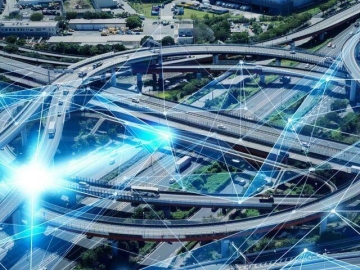Are we driving towards a new mobility landscape?

The mobility & transportation sector has undergone several evolutions which had a significant impact on the organisations and companies operating in it. The speed of these changes increases dramatically.
The mobility & transportation sector has undergone several evolutions which had a significant impact on the organisations and companies operating in it. The speed of these changes increases dramatically.
Keep your eyes open: explore the future
What are the signals of change ahead
that create opportunities or form potential threats for your business?
To what kind of ecosystem(s) are we evolving? How will public services
in mobility look like in 2030? How will the mobility ecosystem of 2050 look like? What’s the future of aviation?
We cannot predict the future, but as TomorrowLab we help organisations and companies like De Lijn, department MOW, skeyes and Q8 answering those questions by exploring future scenarios and how to anticipate on them. No gazing into a glass sphere, but tangible outcomes of the trends and evolutions that are happening today and tomorrow
Stay in the driver’s seat
Based on the insights of future explorations these organisations created a new vision & strategy for themselves while taking the lead in pushing the boundaries of their ecosystem. Q8 decided to broaden their horizons to mobility services. De Lijn evolves from a unimodal operator to a multimodal mobility integrator. For others, such as department MOW and city of Genk, it’s a way to start an open dialogue with their stakeholders about future options and vision in policy making. Or a way to stresstest their future infrastructure designs.
Try, fail and explore opportunities
To put these transformations into practice, innovation projects are set up and new business opportunities are explored. With a strong focus on experimenting and piloting, so we can learn quickly and pivot if necessary. No better living lab than the city streets itself. Together with the city of Genk we piloted with success a new parking concept “Shop and stay” that is now rolled out over the entire city. To learn more about the potential of autonomous vehicles we brought De Lijn and city of Genk together to pilot an autonomous shuttle to service the local hospital. For Q8 an innovation roadmap was set up and with the help of our innovation designers the first new mobility service offerings are tested into the market today. With the provincial development agency (POM West-Vlaanderen) we identified and developed several research and innovation projects with private innovative players and academic institutions to kickstart the data and technology-driven infrastructural development towards the physical internet, Europe’s 2040 vision for transport and logistics towards zero emission.
Combine your strengths with others in the industry
It takes more than one individual effort to make innovation a success. By tapping into the power of an innovation ecosystem you can achieve greater things. Mobility is in full transformation mode. An exciting journey in which we would be happy to guide you with our expertise and innovation network.
Latest insights & stories

A Global Movement: The World Unites in a Pink Pledge for Clean and Sustainable Water
5,000 participants. 32 countries. €30,000 funds raised. And that's just the beginning.
Picture this: One step that sends ripples across the globe, transforming lives and creating waves of change. You might wonder, how can such a simple action for most of us have such a profound impact?

Sustainability and circularity in construction
Join us in transforming the future of construction, creating buildings that not only stand the test of time but also contribute to a healthier planet!

RainTunes: Shower scenarios for the soul
Light, hearing, smell, and touch: Together with experts, we have developed sensuous scenarios that turn showering into an individual experience. Whether you want to prepare for the day ahead or relax after working out. Whether you want to refresh after a day’s work or unwind at the end of the evening: RainTunes surprises with multisensory experiences.*
*Currently available only in Germany and Austria.